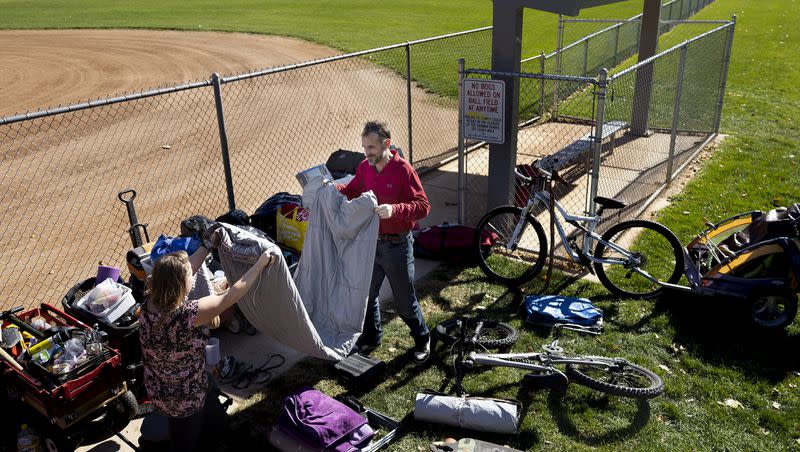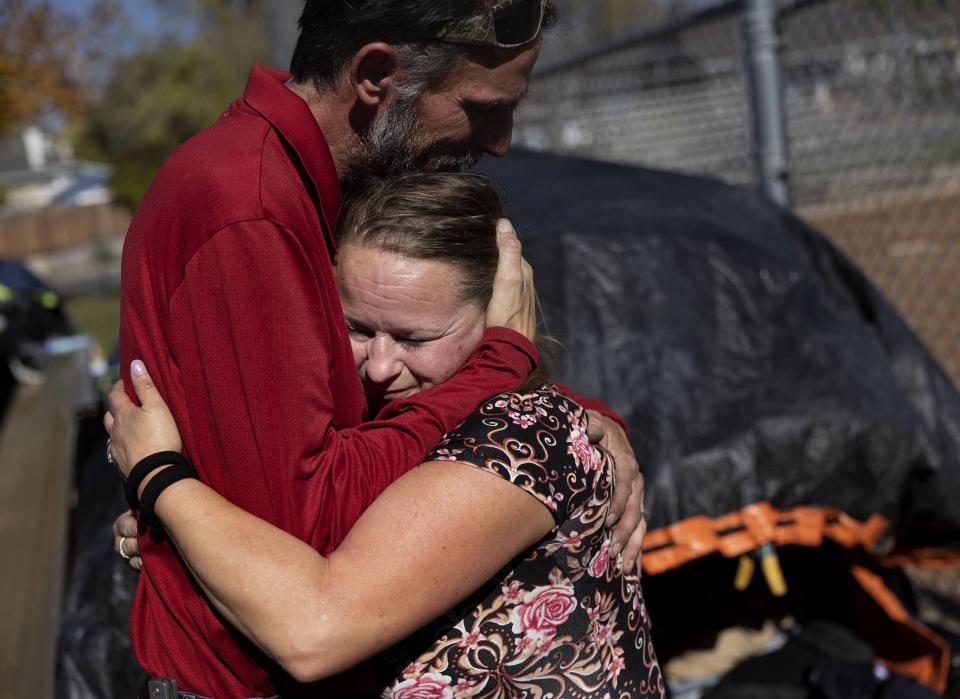Poll: 68% of Utahns support legally sanctioned campsites for people experiencing homelessness

More than two-thirds of Utahns surveyed in a recent Deseret News/Hinckley Institute of Politics poll say they support a policy of legally sanctioned campsites for people experiencing homelessness.
The poll of 802 Utahns, conducted Oct. 12-23, found that 68% of the poll’s respondents support such a policy while 22% oppose it. Twelve percent said they did not know.

Utah Homeless Coordinator Wayne Niederhauser said the poll results are not surprising.
“I hear a lot about establishing sanctioned camping sites because people are so tired of unsanctioned camping,” said Niederhauser in an interview Thursday.
“I think it’s the worst thing we can accept as a society. People are living in places unfit for human habitation or sanitation and health issues. There’s criminal activity, there’s abuse going on. It’s against local ordinances,” he said.
It also perpetuates a lot of misunderstanding about people experiencing homelessness, said Niederhauser, former president of the Utah State Senate.
Each Friday evening, Niederhauser and his wife conduct homeless outreach among unsheltered Utahns.
“We’ve gotten to know a lot of people who are experiencing homelessness and every one of them have mental health issues around high anxiety. And the first thing we ask people to do is, ‘Hey, come into shelter. You’re going to sleep with 50 people in a room tonight,’” he said.
Even though the newer generation shelters are safer and specifically designed as shelters, the anxiety persists, he said. People worry about their personal safety and whether their belongings will be safe.
“We need to be looking at non-congregate types of responses, along with our congregate shelters, but we need both,” Niederhauser said.
The first phase of Salt Lake City’s sanctioned non-congregate temporary shelter project is under development at 558 W. 300 South for planned use this winter into early spring. It will utilize mini shelters manufactured by Foldum of Oceanside, California. Each unit has a bed, desk, locking door, lighting, smoke detector, windows and an HVAC system. There will be portable restrooms and washing stations on site. There are no sanctioned campsites for tents.
In the project’s second phase, the mini shelters will then be relocated to state-owned land because the site at 500 West is slated for redevelopment.
Niederhauser said multiple approaches are needed with respect to temporary shelter.
“Some cities have experimented with non-congregate (settings) like a motel or hotel. We’ve done that through the winter and found that to be very successful. People are much better, their response is so much better, when they have that individual space,” he said.

Related
Related
Andrew Johnston, director of homeless policy and outreach for Salt Lake City Mayor Erin Mendenhall, said the poll results reflect a general sentiment “that most people want to find options for people to live, especially if you’re confronting folks living on sidewalks or alleys or literal streets or vacant lots, whatever it is.”
Poll respondents along all age groups indicated support for policies calling for sanctioned campsites as a means to address homelessness.
The least amount of support was among people who self-identified as very conservative, with 15% answering “strong support” and 34% saying they somewhat support the policy.
Those identifying as somewhat liberal indicated the highest level of support, with a combined 90% responding that they either strongly supported or somewhat supported a sanctioned campsite policy.
Johnston said he believes the majority of people want to help those who are unsheltered.
“Most everyone wants to care about each other and wants everyone to succeed and that includes the unsheltered. I want to assume that the unsheltered want something different as well,” he said.
Niederhauser said the temporary shelter units are not themselves a solution to homelessness but rather “on the road to a better solution. The ultimate here is not even shelter, it’s to get people back into housing. That’s our objective, is to work on getting people into housing.”

